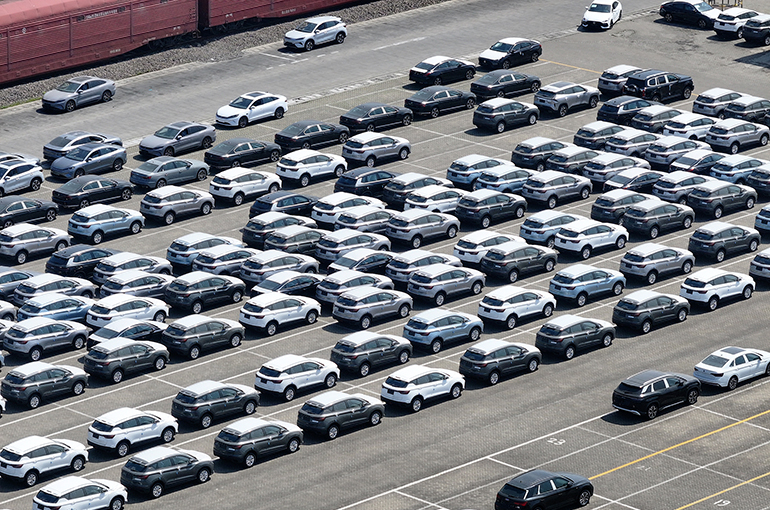 Plug-In Hybrids Propel 78% Surge in Chinese Car Exports to Europe, Report Shows
Plug-In Hybrids Propel 78% Surge in Chinese Car Exports to Europe, Report Shows(Yicai) May 14 -- Plug-in hybrids drove Chinese car sales in Europe during the first quarter, as rising tariffs hindered the transition to pure electric vehicles, according to a European automotive market research firm.
In the first three months of this year, China-made car sales in Europe surged by 78 percent year-on-year to 148,000 units, with market share rising from 2.5 percent to 4.5 percent. Among these, plug-in hybrid sales increased nearly fivefold, becoming the main driver of growth, according to preliminary data released by market analysis firm Dataforce.
Last October, the European Union imposed a maximum anti-subsidy tariff of 35.3 percent on EVs manufactured in China, on top of the existing 10 percent import duty. As a result, Chinese EV makers now face tariffs as high as 45.3 percent when entering the European market. In contrast, plug-in hybrid vehicles are subject to only a 10 percent import duty, prompting Chinese carmakers to adjust their market strategies accordingly.
According to a report by consulting firm Rho Motion, Chinese brands BYD and Chery sold around 3,270 and 760 plug-in hybrid vehicles, respectively, in Europe in March -- a sharp increase from virtually zero prior to the temporary tariff measures introduced last July.
Transition to EVs
"Europe has not included plug-in hybrids under its EV tariff scheme, so these models are seen as transitional alternatives to fuel-powered vehicles, helping meet market demand during the shift toward full electrification," said Cui Dongshu, secretary-general of the China Passenger Car Association.
Cui noted that China has a complete industrial chain for plug-in hybrids, enabling lower system costs and providing a distinct pricing advantage over EVs manufactured in Europe.
The Gasgoo Automotive Research Institute recently reported that Chinese automakers have revised their European strategies in response to the EU’s tariff hikes. In the first quarter, Chinese car exports to Europe rebounded slightly. Companies such as SAIC Motor, BYD, and Chery Automobile expanded their hybrid product offerings to mitigate rising export costs. In addition, Chery has begun exporting parts to Spain for local vehicle assembly to sidestep high import levies. BYD has also established a factory in Hungary, scheduled to begin production in 2026.
China and the EU have resumed negotiations on EV tariffs this year. Both parties are exploring a minimum pricing mechanism for China-made EVs. Cui cautioned that if the minimum price is set too high, it could erode the competitiveness of Chinese manufacturers. Nevertheless, industry analysts believe that a “minimum price commitment” would promote fairer market competition than tariffs.
Cui said that plug-in hybrids represent a transitional phase in Europe but the ultimate goal remains pure EVs. In the long run, as electric technologies mature, infrastructure improves, and environmental awareness grows, consumers will inevitably shift to fully electric cars.
Automakers must take advantage of this transition period by simultaneously advancing pure electric technologies and investing in localized production, Cui concluded.
Editor: Emmi Laine